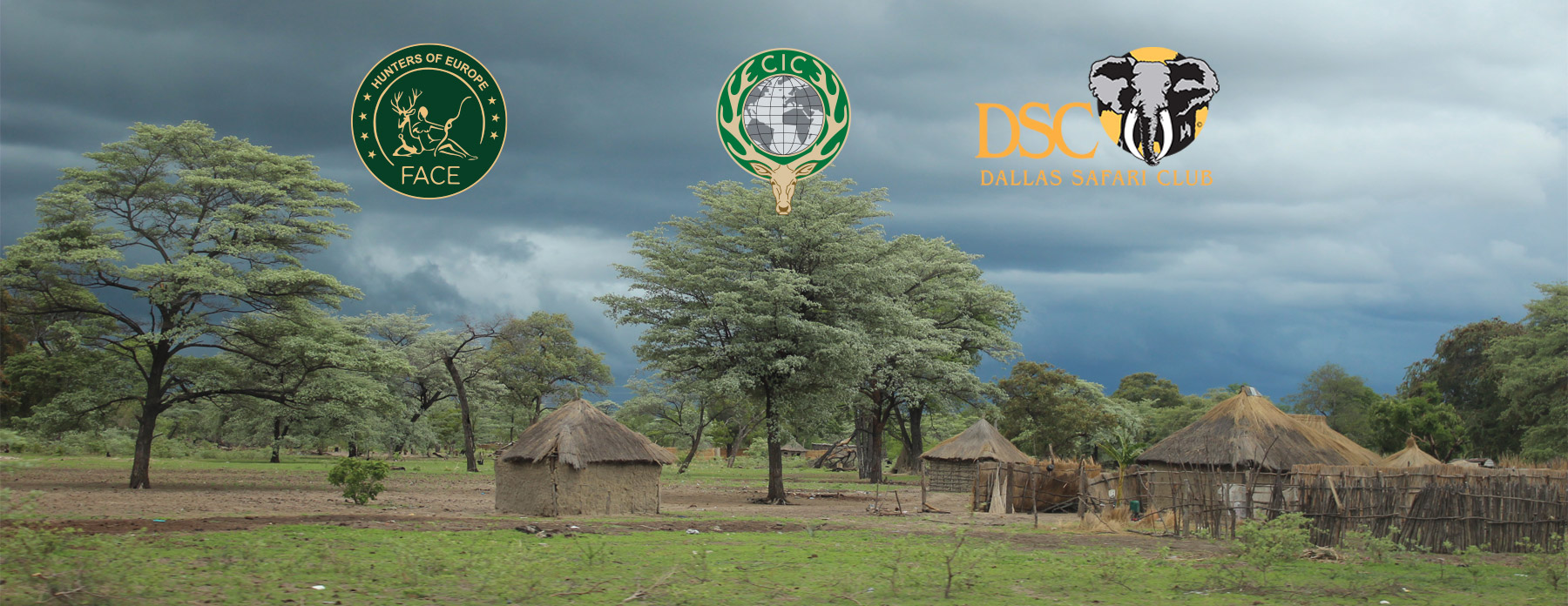
24 May 2019 Press Release – The People of Botswana have decided: Suspension on Hunting Lifted
Brussels, 24 May 2019 – The International Council for Game and Wildlife Conservation (CIC), European Federation for Hunting and Conservation (FACE), and the Dallas Safari Club (DSC) welcome the decision by the Government of Botswana to reintroduce controlled hunting as a component of the conservation strategy of this wildlife rich and biodiverse country. This decision, announced on 22 May 2019, follows an inclusive year-long consultation process, including dialogue with affected communities, local authorities, conservationists, NGOs, tourism businesses, researchers and other stakeholders and is an outstanding example of representative democracy-in-action for which Botswana should be congratulated.
- The high level of human-wildlife conflict and the increasingly negative impact on livelihoods;
- An increase in predators and corresponding increase in livestock deaths;
- The hunting suspension has a negative impact on rural people who had previously received revenue and other benefits from consumptive utilisation;
- Lack of capacity within the Department of Wildlife and National Parks lead to long response times to problem animal control reports;
- The general consensus from those consulted was that the hunting suspension should be lifted.
Yesterday, 23 May 2019, The Minister of Environment, Natural Resources, Conservation and Tourism, Honourable Kitso Mokaila held a press conference, during which a number of misconceptions were addressed, including the allocation of sustainable quotas for elephants.
It was emphasised that the aim is not to reduce elephant numbers, nor to cull, but rather to ensure that rural people have incentives to protect wildlife. This will relieve the current situation whereby rural people bear the brunt of living with large dangerous animals but have no incentives to protect them.
The Ministry was clear that people must be part of the solution, a conclusion that is in keeping with lessons learned and agreed upon by mainstream conservation organisations.
The CIC welcomes this news and would like to make available our many decades of experience of ensuring that hunting is an effective tool for conservation, should this be requested.
FACE also supports Botswana in their decisions to improve the conservation of wildlife and to support the sustainable use of natural resources. Foreign hunters, including from FACE’s membership can play an important role in the future for Botswana’s conservation policy.
DSC congratulates President Masisi, Minister Mokaila and all involved for affirming the need for local governments and people to manage their wildlife resources. This policy benefits Botswana’s people and its wildlife.
Together, the CIC, FACE and DSC commend the Government of Botswana on this important policy decision intended to benefit both wildlife and those living with it. While we welcome the lifting of the suspension of controlled hunting, we note that this must be done, as acknowledged by the Government of Botswana, in a carefully regulated, monitored and transparent manner which continues to take into account the concerns of all stakeholders. This strategy must remain firmly focused on achieving the socio-economic, conservation and economic objectives that have been clearly outlined as the rational for lifting the controlled hunting ban.
With this decision, Botswana is realigning itself with its neighbouring countries who have long recognised the rights of rural communities and the need to enable their stewardship of wildlife resources. This approach has ensured southern Africa developed the healthiest wildlife populations and habitat on the continent during the last half of the twentieth century. Over 90% of Namibia’s wildlife population, numbering over 3 million animals, occurs outside of protected areas – and this is only because people have rights to benefit and wish to participate; whilst together Botswana, Zimbabwe and Namibia now host two thirds of Africa’s elephants and, along with South Africa, are home to over 90% of rhinos.
DOWNLOAD PRESS RELEASE - EN
